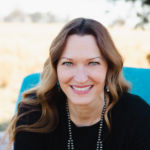
Why would seminarians need to be educated in the sciences? In short, because they will become shepherds in a world dominated by science and technology.
A priest today very well could be asked by a young student in his parish to explain what to make of dinosaurs, Neanderthals, macroevolution, or transitional species. A teen may need help understanding the beginning of human life. A mother may seek guidance about in vitro fertilization and embryonic stem cell research. A friend may need advice for talking with an atheist about neuroscience and free will. A college student may ask about cosmology and the Big Bang, and wonder where God fits in. A terminally ill parishioner may want answers about organ donation or what happens as the body dies.
If a seminarian hopes to shepherd a flock that faces these issues frequently, it behooves him to study science.
The Church values science education
This sort of study is nothing new. In the Middle Ages, St. Albert the Great—St. Thomas Aquinas’ teacher and an enthusiastic proponent of the investigative approach to nature—wrote an encyclopedia of philosophical disciplines based on the Aristotelian texts for his students of the Dominican order. He wanted to prepare his students for studies in the natural sciences.
In 1894 after the scientific revolution, Catholic physicist Pierre Duhem expressed concern about the science education of philosophers. He warned the head of the philosophy department at the Institut Catholique: “[A]s long as they continued to talk about science without knowing a single word of it, the freethinkers would have fun at their expense.”
In our time, the Church has called for the same comprehensive education for seminarians so that they can engage peers. In 1985, Ratio Fundamentalis Institutionis Sacerdotalis, issued by the Congregation for Catholic Education, urged teaching students the natural sciences so that a dialogue can be established with contemporary culture in a meaningful way.
Education in the sciences goes beyond dialogue, though. Science is fundamentally a way to know God better through the study of his handiwork. In 1998, Pope John Paul II’s Fides et Ratio affirmed that the “unity of truth” is a fundamental premise of human reasoning, reminding us powerfully that “the God of creation is also the God of salvation history.” This is the beautiful truth of the Christian worldview. The triune and incarnate God establishes the reasonableness of the natural order that scientists depend upon. Christ is the eternal Word in whom all things were created.
Yet, the atheism and skepticism that followed the scientific revolution compete for public attention. Seminarians need to know science, so 1) they can personally appreciate a broader view of reality and 2) pastorally guide the people they serve and society at large.
In 2006, the fifth edition of the Program of Priestly Formation from the United States Conference of Bishops stated that the goal of seminary formation, at every stage, is “to prepare a candidate who is widely knowledgeable about the human condition, deeply engaged in a process of understanding divine revelation, and adequately skilled in communicating his knowledge to as many people as possible.”
This goal, however, is difficult in the current educational climate. If candidates for the priesthood have been educated as experts in a discipline, particularly a scientific or technical one, they often lack education in the humanities and are therefore unable to make pastoral connections with the people they serve. The dilemma is one of balance. How do seminaries produce priests competent in both technology and the classics? Given the short time they have to complete formation, such breadth is difficult.
Nevertheless, in Evangelii Gaudium Pope Francis wrote that the dialogue between faith and science is an important work of evangelization and peace. It must be done.
A program to re-engage science in seminaries
To accomplish this objective, a team of educators and clergy began a project called “Re-Engaging Science in Seminary Formation,” a two-year long effort to bring science courses to the intellectual formation of priests in Catholic seminaries in the U.S. The John Templeton Foundation through John Carroll University funds this project which is inspired by the Church documents mentioned above, particularly those since the Second Vatican Council calling for the recovery of science education.
The project invited professors from seminaries to submit unique course proposals. The courses are not strictly science, teaching equations and theories—rather, they are science in the light of faith, focused on the challenges Catholic face. To date, there are thirty-one new science courses offered in American seminaries. The first round of teaching has been completed, the courses are becoming integrated into the institutions, and seminarians across the nation now actively engage the big questions that science poses to theological inquiry.
The courses tackle issues such as evolution, human origins, gender science, neuroscience, psychology, cosmology, and quantum theory. The professors are philosophers, theologians, and/or priests. Many are also medical doctors and scientists.
For example, at Notre Dame Seminary in New Orleans, Christopher Baglow, and Cory Hayes teach a course on human origins titled The Emergence of the Image. John Finley’s course at Kenrick-Glennon Seminary in St. Louis is titled, Man and Woman He Created Them: What Science Tells Us about Gender. Benedictine Father Luke Dysinger developed a course about virtue, vice, and addiction for St. John’s Seminary in Camarillo, California Fr. Andrea Vicini, a Jesuit and M.D., teaches about genetics and biotechnology at Boston College School of Theology and Ministry. My own course at Holy Apostles College & Seminary in Cromwell, Connecticut teaches seminarians how to read scientific papers so they can navigate all these issues. There’s even a Science and Theology of Food course at Seton Hall’s Immaculate Conception Seminary in South Orange, New Jersey.
We are all called to scientific literacy
The call for science education among seminarians really applies to all Catholics. It is easy to forget that for most of recorded history religions provided the concepts for understanding human life and the cosmos. The emergence of a physical theory in the Christian Middle Ages changed the way people think of their existence. Therefore, to defend the faith in the world today, we must be knowledgeable about God’s creation, from atoms to organisms to galaxies. Our time on earth is meant to lead souls to heaven. As this project shows, the faith-science conflict myth is dimming as a relic of the past. Catholics strive for scientific literacy because we have the correct vision for progress.



